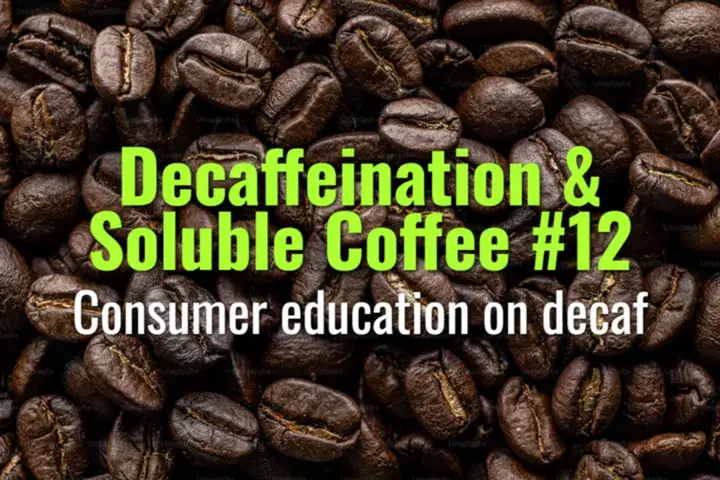Consumer education on decaf
How to educate consumers about decaf coffee, address misconceptions, and highlight its role in specialty coffee culture.
- Coffee Basics Nerds
- 2 min read
Article 12 of 12 in Decaffeination & Soluble Coffee/

Why Consumer Education Matters
- Many consumers still believe decaf is inferior in flavor or unsafe due to outdated perceptions of solvent use.
- Specialty decaf quality has improved dramatically, but communication hasn’t always kept pace.
Common Misconceptions
- “Decaf is chemical-laden.” Reality: Solvent residues are negligible and regulated; Swiss Water and CO₂ methods use no solvents at all.
- “Decaf tastes bad.” Historically true, but modern methods + specialty sourcing preserve origin character.
- “Decaf isn’t real coffee.” Cultural stigma that overlooks its value for sensitive or evening drinkers.
Education Strategies
- Menu Transparency: Clearly state process (Swiss Water, CO₂, Sugarcane EA) to normalize decaf.
- Staff Training: Baristas should confidently describe decaf as specialty-grade, not an afterthought.
- Tasting Flights: Offer side-by-side tastings of regular vs decaf from the same origin.
- Content & Storytelling: Use blogs, social media, and in-store displays to explain modern decaf processes.
- Health Guidance: Share balanced information (safe, beneficial for sensitive groups, pregnancy-friendly at moderate intake).
Specialty Coffee Positioning
- Highlight decaf single-origins and micro-lots to show it belongs in the specialty tier.
- Emphasize flavor diversity, not just absence of caffeine.
- Position decaf as a lifestyle-friendly option for wellness, late-day drinking, or personal choice.
Summary
Consumer education helps dismantle myths about decaf and reframe it as a legitimate, high-quality coffee option. By focusing on transparency, tasting experiences, and staff knowledge, cafés and roasters can normalize decaf and celebrate it as part of modern specialty coffee culture.